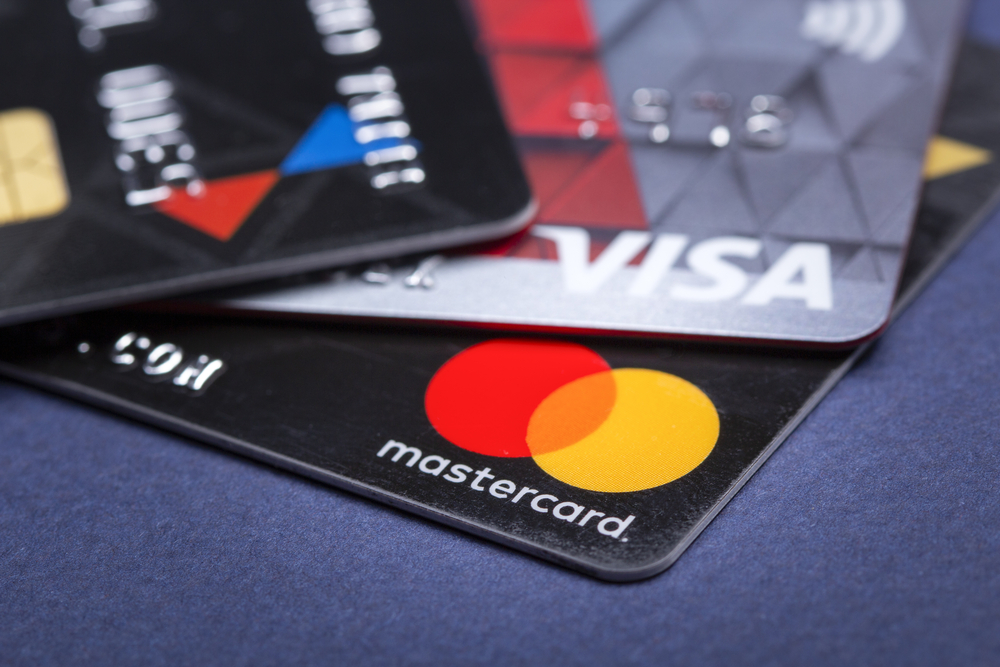
Religious Info Products: Your Choice In Payments Affects How You Scale
Sep 22, 2020 8-MINUTE READ
Brand owners selling religious info products like Muslim matchmaking advice, Jewish online courses and Christian e-books must choose better payment options.
Since spring 2020, there’s been wave of new info products. Information product ideas are not new. They’ve have been around for a long time. But in the past several months there’s been an upward trend.
This boost is likely triggered because of people locked down due to the Coronavirus. Unemployment is high and the gig economy is about to get bigger with hundreds out of full-time work. As a response to that, some affiliate marketers and copywriting pros already familiar with digital products are creating their own opportunities.
What’s especially interesting is the sheer number of religious info products that have popped up. And with it, misconceptions on how to accept credit card payments from potential customers.
Seasoned brand owners have made money producing and selling info products for years. We know, because this is a sizeable representation of our merchant portfolio. DirectPayNet has worked closely with these entrepreneurs since our doors opened over a decade ago. We’ve seen a thing or two when it comes to payments for this product type. So, we’re experts in helping merchants get the right payment gateway for this type of online business.
In this blog post, we will touch on how you can scale to your first $100,000 with a better payment strategy. Information product business types vary. For now, we’ll touch on Jewish, Muslim or Christian info products as these business models seem to drive the most interest. That said, even if you have a non-religious info product, some of the strategies below are still relevant to your e-commerce business.
Digital products are high risk
Info products are the same as digital products. No matter the name, your business model is high risk. It doesn’t matter if you offer Christian e-books, Muslim-themed webinars, or online Hebrew courses for newcomers to the Jewish faith. If a payment provider declines your merchant application, that isn’t because they are opposed to your religion. What they’re opposed to is risk.
In our experience with info product owners, they develop viral lead magnets and deliver great products. That usually starts with a persuasive sales letter, free guide, cheat sheet or other type of free content. Then they build their business by introducing upsells, subscription products and may even look into adding physical products or supplements that appeal to their customer base. Finally, they launch a Facebook ad that yields a high-conversion rate.
These are all surefire ways to scale six or seven figures. But with that high volume comes risk. What happens when your Facebook ads get banned, or you receive 45 chargebacks in one month?
Info product producers love rebills, but the subscription model can be a bigger headache long-term if the right content isn’t offered. No payment provider wants a wave of fraudulent transactions or three consecutive months of chargebacks. Often this comes from making false claims or not delivering on results promised. Also, customers call their banks if they feel they should have paid less than the actual price for a poor quality product.
Since this type of risk is a big issue, you want to keep fraud low. Anti-fraud tools and other measures (like EMV 3DS) need to be applied via your CRM or gateway to help curb chargeback fraud. Make sure you’re going after the right target audience so conversions are high and you end up with few declines and refunds, or even bad customer reviews.

Nearly all of our clients that sell info products only work with merchant accounts for their payments. (Photo by Anthony Shkraba from Pexels)
Stop using an ordinary payment gateway for your extraordinary product
As an info product creator you’ve probably spent a lot of time and resources creating the right sales page and funnel for all your traffic. The common trend we see with a lot of newbie affiliate marketing vets, blogging and email marketing pros is they all badly want passive income. The info product business is hardly passive and requires full-time attention. So does your payment funnel.
Nearly all of our clients that sell info products only work with merchant accounts for their payments. They may have initially started out with Stripe, PayPal or ClickBank, but the majority of the time they switch. There’s even platforms dedicated to digital products and for a fee (e.g. $29 per month plus 8% of sales), they will host all your digital assets and deliver the content to customers.
Third-party platforms like Stripe are great for small ticket items . However, sometimes they don’t suit subscription-based business models as well. Want to sell belts, shoes or clothing for low prices like $20 or $80? Then that’s a suitable payment infrastructure.
Your product creation and offer is a little more complex. Particularly because you’re not delivering a physical product. Also, you’re providing religious content that decision makers may already look at suspiciously. You may be offering $99 e-books on how to find a Christian wife or husband. This could be followed by a $29.95 a month subscription to online dating courses. Stripe won’t cut it.
Don’t shut down your Stripe account yet
Before you rush to close your Stripe (or other) account there’s a few things you should know. If you have Stripe, PayPal or another third-party platform, keep it open for now. You can still use your sales activity in those platforms for processing history. Do not download Excel CSV or XLS files. Instead, pull or request a full monthly report of sales by calendar month in PDF.
Your processing statement should resemble a bank statement. Make sure those stats include refunds and chargeback disputes. If that isn’t possible, pull stats by month and take a screenshot of your dashboard with the relevant numbers.
It’s important to note that a lot of people get their start on ClickBank too. This is a good starter platform, because it’s tied to an affiliate marketplace. You can tap into traffic from partners that already promote digital products. But again, you’re losing a big chunk of your revenue. Once fees are all added up it can leave you with 10% to 20% in lost margins. Eventually you will want to apply for a merchant account. This offers more control over your fees, shopping cart or CRM, transactional data and much more.
If you want to learn more about credit card processing rates and fees, click this blog to learn more. You can also reach us directly if you need a payment solution for your religious info product. Email us today!
The next thing you should do is find a high-risk merchant account provider. A high-risk payment gateway is the best fit for your religious digital brand. You will have more room to sell a wider variety of products and higher volume of sales. A high-risk payment gateway is robust enough to support sales of both your front-end and back-end products.
For example, you can bundle both your front-end religious video sermon and your leadership training guide all in one for a small price. You can also provide six months of individual or group mentorship classes for a flat rate or a monthly subscription.
Info product business models have more complex back-end services (e.g. support for membership sites and intense offers for email lists). With a high-risk merchant account, you can process high transaction amounts (e.g. $2,500), rebills and monthly volumes of six or seven figures. So, if you are at $25,000 and need extra capacity for say $125,000, this is the way to go.
There is one successful strategy copywriters and bloggers use to run offers through two channels. They route transactions to Stripe or ClickBank, and their new merchant account. If you do this, be vigilant that you don’t process too aggressively. For example, don’t direct $15,000 in a week to your Stripe account. This type of activity sends alarm bells to low risk platforms, no matter how high quality the sales are.
Get rid of fake testimonials and claims
Now that you are ready to take the plunge and apply for a high-risk merchant account, there’s a few things you should know. Make sure you have a compliant website and have all supporting documents ready. All payment providers will screen your business and the directors first before they approve you.
Most important, some info product merchants neglect the appearance of their online offer. One fast way to getting declined is having a non-compliant website and any content that is not authentic. Spelling mistakes are a big deal. Poor or inauthentic customer reviews also have a negative impact.
In fact, testimonials are a big turnoff for providers of merchant accounts. Make a first good impression when showing your website. Fake testimonials should be removed.
Stock photos are so saturated now that John Smith who wrote glowing reviews about your spiritual podcast is everywhere. It’s the same stock images that are also featured on supplement sales pages and Amazon FBA mastermind membership sites and elsewhere on the internet.
Fake testimonials are not the only thing. Newbie info product owners need to get rid of all Lorem Ipsum placeholder text. This is super unprofessional when a payment provider sees this on your site.
Additionally, any religious content promising miracles or stirring up controversy that incites aggressive behavior will get you rejected. Banks are conservative. So if they see you promoting audio recording motivating people to engage in questionable activity, you will be declined for payments. We’re talking congregating at religious live events during the pandemic. Or, blatantly promoting conspiracy theories that might encourage people to take up arms and weapons. Do yourself a favor and clean up your online brand and image.
Some final thoughts
If at any point in the future you decide to add a physical item (like supplements) to your digital product, make sure to tell the account manager of your payment provider. Physical products are vastly different and may be more of a hinderance to your payments than a complement. As an example, if you sell a physical religious-themed recipe or lifestyle book with your digital product, your payment provider may not see it as much of a stretch from your current offer. That’s because you could be offering the same product in PDF format. In that case all you may need to do is supply some photos of the physical inventory.
However, if you’re planning on adding nutraceuticals like bottles of holy oil, herbs or health supplements for oral ingestion, this is a completely different item. Visa, Mastercard and Discover all identify your info product business with a specific merchant category code (MCC) unique to digital content. When you add a physical item from a completely different category, this requires another MCC. If you don’t approach your payment provider in the right way, you could be suspended. Meaning you may need to apply for a new merchant account.
There are so many diverse types of information products. Not all of them are built the same. You see your product as being incredibly unique. We have the same philosophy when it comes to the payment gateways you choose for your products.
If you wish to complement Stripe or ClickBank payments, email our team here. We will follow up and provide a free consultation within 24 business hours.




